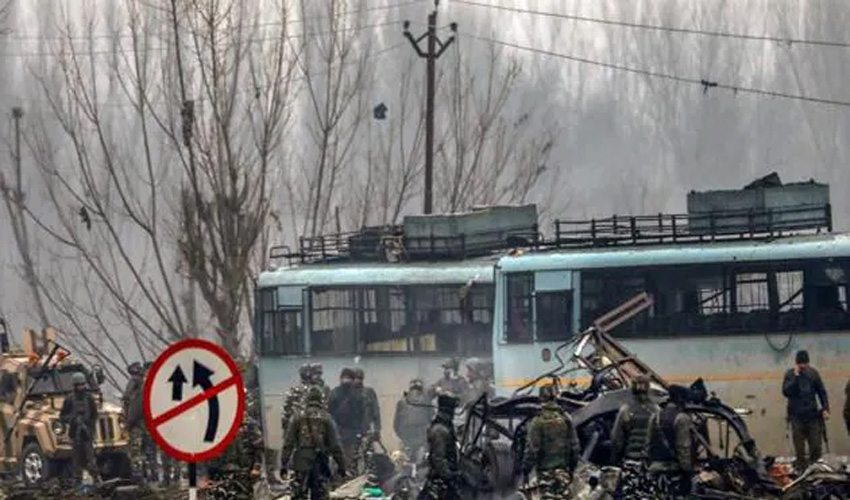The credibility of India's narrative surrounding the Pulwama incident has come under intense scrutiny, as claims made by Indian media and officials are being called into question by both international observers and domestic experts.
Renowned American journalist Kristen Fair has shed light on what she describes as a web of lies constructed by Indian authorities. Fair categorically stated, "I can say 100 percent that no F-16s were destroyed." Her remarks directly challenge the Indian Air Force's assertion that it shot down a Pakistani F-16 during the skirmish following the Pulwama attack.
Moreover, Fair's comments take a damning tone as she expressed a wish for the Indian Air Force to have successfully downed an F-16, further undermining India's claims and highlighting the lack of evidence to support their narrative.
Adding to the skepticism, reports from reputable sources such as The New York Times have suggested that an Indian Air Force pilot crashed his own plane in haste during the engagement, casting doubt on the military's competence and raising questions about the accuracy of their accounts.
The Indian defense establishment's assertions have also been met with skepticism from within the country, as Indian defense experts reject what they term as "false and fabricated claims" put forth by the Indian Air Force. This internal dissent further weakens the credibility of India's version of events.
In a surprising admission, former Indian General Syed Atta Hasnain acknowledged Pakistan's Inter-Services Public Relations (ISPR) as a formidable force in information operations, suggesting that India could learn from its neighbor's strategies. Hasnain's remarks underscore the complexities of the information landscape surrounding the Pulwama incident and highlight the need for a more critical examination of the facts.
As the Pulwama narrative continues to unravel, it becomes increasingly evident that the truth behind the events of that fateful day may be far more elusive than initially portrayed.
With international observers and domestic experts alike raising doubts and challenging Indian claims, the need for transparency and accountability in addressing such sensitive matters has never been more pronounced.



























